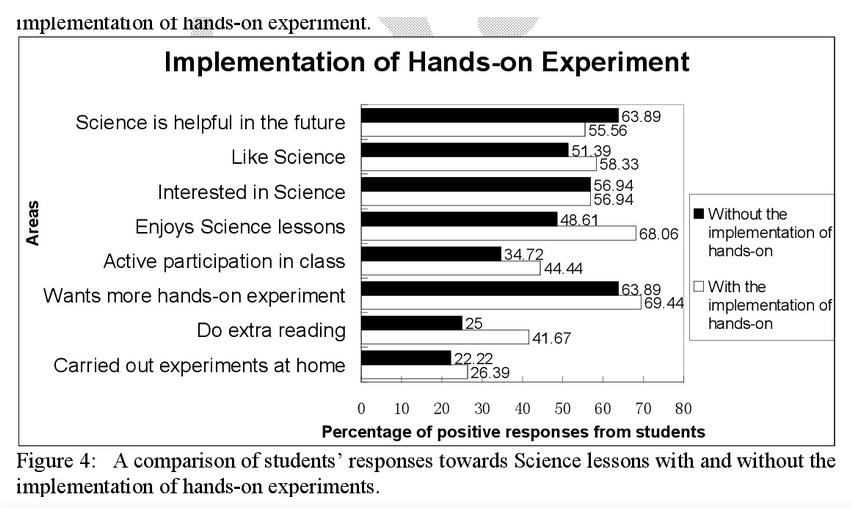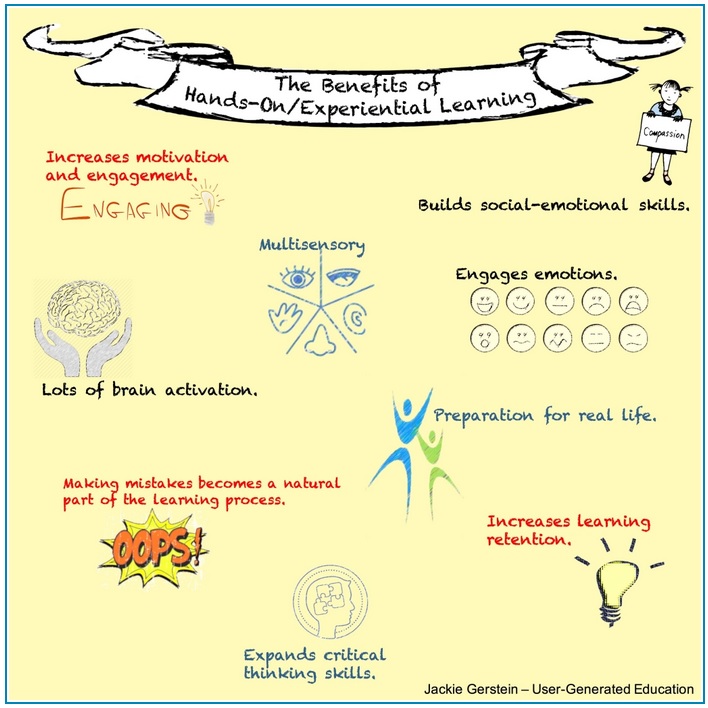Learning By Doing: Incorporate Hands-On Science Learning For Special Education With 5 Tips
31st October 2023

As special education teachers it can sometimes be challenging to understand differentiated education. While in-class and online special education courses are meant to equip teachers with all the methodologies and strategies to teach students with special educational needs, they can sometimes fall short while teaching concepts of science and maths. Even though the general education teachers will offer you a guideline and will ask you to modify the grade level curriculum, there is only so much you can adapt.
Tips To Teach Science In A Special Education Classroom

Source: www.semanticscholar.org
Here are 4 tips by which you can teach science curriculum in your classroom through hands-on activities:
1. Use Real Life Objects
Let's be honest, when you are trying to engage students with special educational needs, you cannot use the same techniques as you did with regular students. To keep abstract concepts engaging and interesting, you need to use learning ways that involve movement. To do so, use real objects and props. Science concepts will become more applicable to the learner when they use real-life objects.
You can use relatable props while teaching a lesson. For example, when teaching measurement you can have objects for pouring milk, measuring laundry detergent, measuring cooking ingredients, etc. The more hands-on practice students get, the more meaningful it becomes to them and the chances of generalization of such activities get higher.
Hey, do you follow us on Social Media? We regularly share upgraded educational content, tips, feedback and more. Check us out by clicking the profiles here - Facebook / Twitter / LinkedIn / Pinterest / Instagram / YouTube
2. Offer Visual Comprehension
Finding the perfect curriculum that satisfies all your special education learners' needs can be hard to find. Thus, try to include a lot of visuals. Use magnetic boards, picture cards, or other activities that require active participation of the kids. While teaching a lesson create a magnetic board and ask students to stick the relevant items on the board.
To make it more exciting you can first hide the items in the classroom and ask them to find them and stick them on the board. To make things competitive, you can divide the class into groups or pairs. Doing this will expose your students to the vocabulary related to the concept and also remember it for a long while doing the activities.
3. Provide Differentiated Education
If you are a special education teacher, chances are you are teaching several grade levels. It is quite natural that not all of your students will have the same level of understanding when it comes to teaching science. Students sometimes need something more than just a worksheet to be able to grasp and retain the concepts better.
The key to differentiated education is to have all options available for your students so that they can get the appropriate opportunity to be challenged yet gain relevant skills and knowledge. With this type of education, students will not only be excited and enthusiastic about learning but will also actively participate in a curriculum that best fits their needs.
4. Use Science Related Reinforcement
When you are trying to teach science, it is best to keep your reinforcers science-related as well. This will allow students to reiterate everything that they have learned. Some of the best reinforcers you can include are recipes, slime, and experiments.
Before introducing these activities to your students allow them to choose what they want to work with. Offer them a few enticing options that you know they would love doing. Once they have selected their activity, you can motivate them to start and complete their work during the designated time.
Benefits Of Hands On Hands-Activities for Special Education Kids

Source: usergeneratededucation.wordpress.com
Here are some other benefits that this kind of teaching can have on your students:
- Nurture Curiosity
One of the main advantages of hands-on activities for students with special educational needs is that they ignite the curiosity of the learners. They get the chance to experiment and explore independently thus becoming eager to find answers to all their questions. This intrinsic motivation allows them to understand the underlying principles and drives them to seek more knowledge.
- Enhanced Understanding
Students can better visualize abstract concepts with hands-on learning. Since they are doing everything themselves they have a better understanding of how things work in real life. This concrete understanding deepens their knowledge of complex theories allowing them to retain the concepts better.
- Encourage Critical Thinking
With hands-on activities, students get challenged as they need to analyze data, make connections, and draw relevant conclusions from them. They learn to think critically about the outcomes of their experiments thus allowing them to prepare for real-life situations.
- Cultivate Problem-Solving Skills
When students face various challenges during activities, they must think on their feet and out of the box to come up with solutions. Hands-on activities provide an actual opportunity for the learners to hone their problem-solving abilities. In this process, you also nurture their adaptability, resilience, and key life skills.
- Foster Communication And Collaboration
When you divide the class into pairs or groups during activities, you foster a sense of collaboration and teamwork. Students learn to communicate their thoughts and opinions through discussions and group work. They also get exposed to various perspectives thereby enhancing their learning experience.
Make Learning Fun
Since science is a complex subject, it does not always have to be boring. You can take actionable steps to make science teaching to your students with special educational needs more fun and engaging. While designing your schedule and selecting your resources, make sure you cater to the needs of all your learners. Use the learning that you have gained while pursuing in-person or online special education courses and make science experiments and activities thrilling to create the best learning environment.
We believe education should be accessible for everyone. That’s why we don’t charge for our blogs. Find the right course that will help you in your career with us, contact us at - (+84) 973240969. You can mail us at act@asiancollegeofteachers.com.
Written By : Sanjana